 Dictionary for visualizing key terms.
Dictionary for visualizing key terms.
 Dictionary for visualizing key terms.
Dictionary for visualizing key terms.
Science Index | Analysis | Population Index | Global Warming Index | Nature
 Vocabulary is the basis
of all serious discourse. For better participation in class, more vivid written descriptions and stronger
arguments use words carefully, clearly and concisely to convince the reader
you have understood the discussions in class, the texts and the professor.
Vocabulary is the basis
of all serious discourse. For better participation in class, more vivid written descriptions and stronger
arguments use words carefully, clearly and concisely to convince the reader
you have understood the discussions in class, the texts and the professor.
This below is a short list for beginners of key words and definitions with links to more pages to read on this site:
 brainwash, to have one's beliefs and views
altered by undue persuasive force. Noam Chomsky says manufacturing consent is old style propaganda in a guise
of objectivity, reductionism, certainty, & fragmentation.
brainwash, to have one's beliefs and views
altered by undue persuasive force. Noam Chomsky says manufacturing consent is old style propaganda in a guise
of objectivity, reductionism, certainty, & fragmentation.
see the , brain binding capacities.
Commodification , commercialization, or the selling of things;
Conspicuous consumption is the ostentatious display of wealth in order to gain recognition, increase one's status, intimidate others, or dispel reality.
Culture, from the Latin word cultus, to cultivate (raise crops) or to form a cult, refers to the inherited ethnic identity of all peoples derived from:
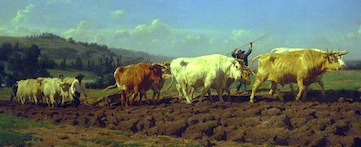 Culture as in agriculture transformed humankind, landscape, taste, and memory.
Culture as in agriculture transformed humankind, landscape, taste, and memory.
Delusions
delusional intelligence, refers to some distortion inherent in technology is enhanced by our ignorance of aesthetic judgment, moral certitudes, and decency -- but it is further and needlessly mystified if we do not understand the rationale, synergy, timing, or varied aspects of technology.
density is the measure of the number of any items, usually a population, in a particular area having a determinable size. The size of the area is usually given in acres, or square miles, or in hectares.
For details see space.
ecology, is derived from the GREEK words for household and logic or knowing rationally:
A widely used term often synonymous (but different in meaning from) with surroundings, environment, conditions, situation, or milieu.
When correctly used meaning: a study of relations among (living and never living) elements that function together to keep the whole of life in areas from exhausting needed resources or sources of materials, supplies or nutrients.
Ecological means considering the number of creatures a place sustains over time.
 Editing can be an example of a manufactured
view point by leaving out significant details and including tangential details that crowd out the focus of an issue,
event, or problem.
Editing can be an example of a manufactured
view point by leaving out significant details and including tangential details that crowd out the focus of an issue,
event, or problem.
fabricating consensus is based on our widespread ignorance of media uses, the influence of technology in shaping our reality, and the illusion that every new product is a signal of progress.
geographical regeneration is the art of restoring the productive, aesthetic and ecological conditions of the landscape in order that immediate needs can be balanced with continuing prosperity in the future. Suggested by George Perkins Marsh, U.S. Ambassador to the Ottoman Empire (1851) and Italy (1861), in 1864.
human ecology is the study of how humans adjust to and adapt physical or biological existence to their own advantage.
imagery revolution, [1800 - 1998]
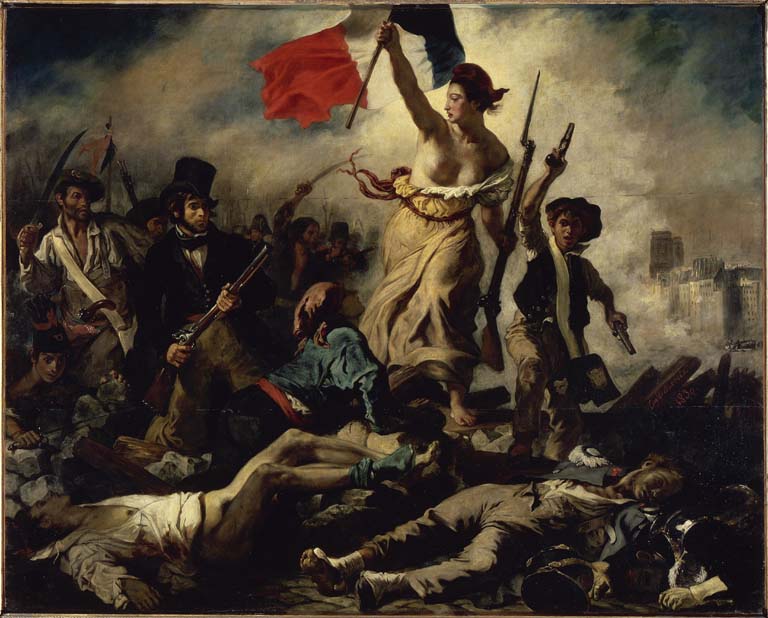 With its origins in printing, pamphlets, art, newspapers, photography and telegraphy the creation, transfer and dissemination of images based on stories and accounts of events altered how people knew about world events after the Dutch, English, American, and French political revolutions. With the coming of advertisements in newspapers the capacity to persuade readers became a craft practice.
With its origins in printing, pamphlets, art, newspapers, photography and telegraphy the creation, transfer and dissemination of images based on stories and accounts of events altered how people knew about world events after the Dutch, English, American, and French political revolutions. With the coming of advertisements in newspapers the capacity to persuade readers became a craft practice.
| imagination requires that the images we see in painting or art or on film, video-tape, or in print be "honest" portrayals since images and symbols have the capacity to distract us from the reality of the world. | |
 |
|
| Manufacture of consent, the capacity of people to control media in such a means as to use the capabilities to influence public understanding of many –if not all events– propaganda. | |
|
|
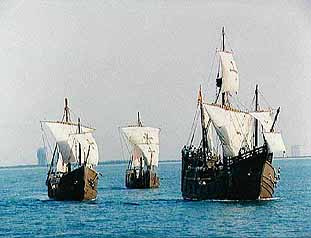 |
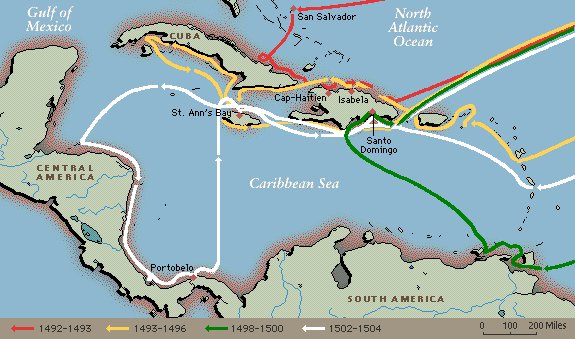 |
For the idea that "Columbus discovered America in four voyages" is an example of manufactured consent. |
|
misplaced sentiment: is the inability to distinguish true feelings from less sincere nostalgic yearnings for allegedly simpler times in the past.
See also: fictions.
oikumene, oikoumen, In the ancient Greek tradition oikoumene is the concept of "the inhabited world," although it had six other meanings.
The Hudson River valley farm fields land granted originally by the Dutch visibly reveals occupation since the 1640s.
politics of tools, by failing to critically analyze the influence of our media (tools) on policies, laws, trials, and livelihoods we are prone to manipulation because deception is so widespread.
Memorial to the Berlin Wall.
reclamation is the actual alteration of land to restore it to productive purposes from some allegedly unproductive, original condition.
reification means treating anything fictional or abstract as though it were actually existing or real. Treating an abstraction or some ideal as substantially real.
science is our word for knowledge and is derived from the Indo-European word to cut, separating by slicing, diverting,
A model of the solar system.
or
The word has a general and specific meaning
- Science is the knowledge we amass about the physical universe's predictable periodicity.
- Science is really a method of knowledge accumulation, or way of knowing about our existence.
that depends on the context in which the word is used.
sybaritic, means -- wantonly indulgent, luxurious display of behavior to avoid work, a pleasure seeker.
|
synergy, synergistically, synergistic, two or more forces acting in tandem have an impact that is greater than the mere sum of the combined effects.
technological autism a form of technical virtuosity in media and transportation has encouraged us to become out of touch with the actual processes that living things depend on for their survival and emotional security.
technology, is the systematic application of knowledge to expressive, manufacturing, mechanical, industrial, chemical, theatrical or cinematic arts.
Deep technology is the key to this broadly defined and widely misunderstood term or tag.
technical changes refers to five related influences of the capacity of technology change our milieu.
trivialize, the skillful ability to divert attention from serious or weighty issues and focus mass attention on so many inconsequential details that most observers lose track of the heart of an issue.
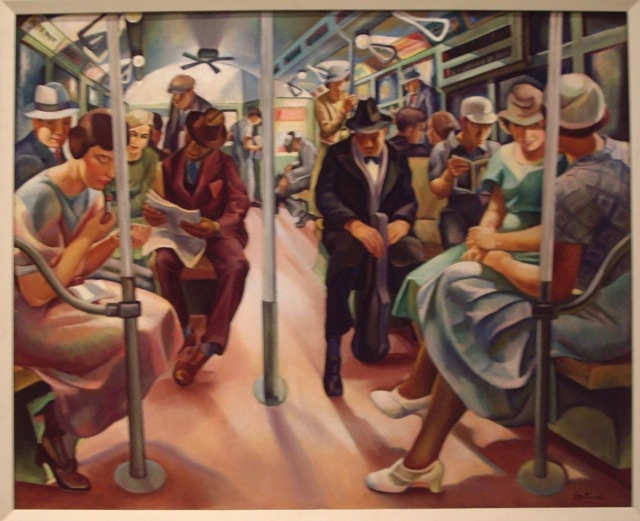
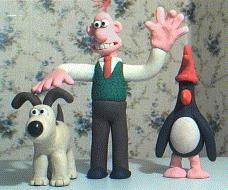
![]()
Social sciences
Technology index
Nature index
Words index
Photograph index
Terms | Glossary | Rare Words | Basic vocabulary | Advanced Vocabulary | Antonyms | Synonyms | Obscure words